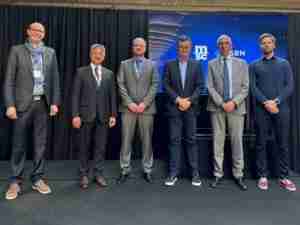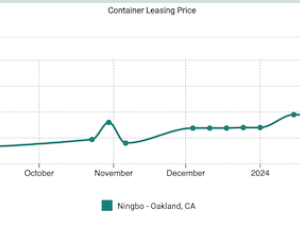On 8 November 2010, the CMA CGM OTELLO also called at the port of Cai Mep in the south of Vietnam for the first time, and from there the ship reached the Port of Hamburg after a transit time of 22 days. The Port of Cai Mep is about 80 kilometres south of Ho Chi Minh City. The construction of new port cargo handling facilities in Vietnam ' for example near Ho Chi Minh City and Haiphong ' is increasingly prompting overseas shipping com-panies to call at ports in Vietnam directly. No fewer than three direct connections between ports in northern Europe and Vietnam have been established in the year 2010.
The FAL 3 is the third scheduled liner service for containers linking Hamburg with Vietnam. The first was the Asia-Med-Europe (AME) service operated by the shipping company ZIM, launched in September 2010, and followed closely by the Asia'North Europe Loop (NE-5) run by the CHKY Alliance in October 2010. Additional direct connections are expected to be established in future.
Previously, goods from Vietnam were shipped to Europe via Asian transhipment hubs such as Singapore. Commodities imported from Vietnam via the Port of Ham-burg are mainly food stuff (coffee, fish) and clothing. Exports to Vietnam shipped via Hamburg, mainly as general cargo, are scrap metal and machinery.
With the introduction of direct scheduled liner services, which cut transit times by about a week, the volume of cargo shipped to and from the southeast Asian Tiger economy is expected to increase.






